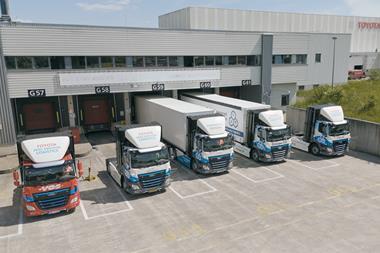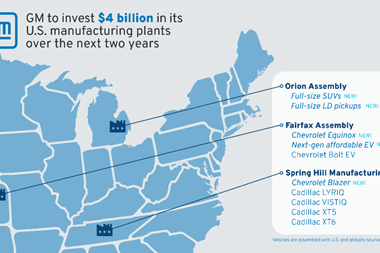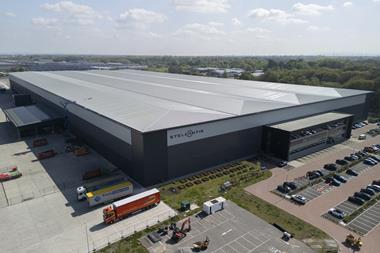 The UK passenger car market has enjoyed its best half-year performance in terms of vehicle production since 2000, latest figures from the Society of Motor Manufacturers and Traders (SMMT) have shown, manufacturing more than 897,000 cars – a rise of 13% on the same period last year.
The UK passenger car market has enjoyed its best half-year performance in terms of vehicle production since 2000, latest figures from the Society of Motor Manufacturers and Traders (SMMT) have shown, manufacturing more than 897,000 cars – a rise of 13% on the same period last year.
June saw the eleventh month of consecutive growth for UK carmakers with 158,641 units produced – the highest level for the month since 1998, according to the SMMT.
The rise in production in the first half of the year was driven by exports, with almost 78% of vehicles – 695,139 – going overseas, the majority to the European Union (EU).
But with the EU the biggest market for UK made cars, the UK’s vote in June to leave it is causing concern for a number of carmakers and suppliers. A recently published survey of SMMT members showed more than 57% of respondents believed the ‘Brexit’ vote would have a negative impact on business, with just 8.3% seeing it as positive.
More than 68% of respondents to the SMMT survey were most concerned about the potential negative impact of tariffs, custom charges or other barriers between the UK and the EU single market.
Adding to such concerns, Ford last week forecast that the referendum decision could cost it $1billion over the next two years, leading to the possibility of it raising prices in the UK and Europe. The company’s chief financial officer, Bob Shanks, said the rise would be needed to recover money lost through foreign exchange movements. The British pound lost 11% against the dollar following the Brexit vote on June 23rd.
It was also widely reported last week that Ford was considering closing its factories at Dagenham and Bridgend in the UK – though this has since been dismissed by the carmaker.
“We did not say…that we are considering closing plants in the UK,” said Shanks. “Ford of Europe just reported its best second quarter ever. What we said is that we are committed to our full year guidance of delivering company pre-tax profit and operating margin equal to or better than the record results we achieved in 2015. We also said that we also are seeing risks build across the business, and they are presenting a risk to us being able to achieve our guidance. As a result, we have put in place profit improvement actions – in Europe and across our global operations – to mitigate the risks so we can achieve our plan.”
The car industry has shown strong support for remaining in the EU, with 77% of SMMT car association members supporting EU membership ahead of the vote in June. Following the result, carmakers including BMW and Jaguar Land Rover have reaffirmed their commitment to the UK sector while others, including Nissan, Toyota and Honda, have been more cautious and are reviewing their approach.
"Toyota will closely monitor and analyse the impact on our business operations in the UK and establish how we can maintain competitiveness and secure sustainable growth together with the UK automotive industry and other stakeholders," said the company in a prepared statement.
Whatever the approach, access to the European single market will be central to carmakers' plans.
“UK automotive is globally competitive with overseas demand for British-made products increasing, not least in Europe which is by far our largest market,” said Mike Hawes, CEO of SMMT, about the latest figures.
“The latest increase in production output, however, is the result of investment decisions made over a number of years, well before the referendum was even a prospect,” he added. “These decisions were based on many factors but, primarily, on tariff-free access to the single market, economic stability and record levels of productivity from a highly skilled workforce. To ensure the sector’s continued growth, and with it the thousands of jobs it supports, these must be priorities in future negotiations.”
As well as its finished vehicle exports, the UK imports almost 60% of content from abroad, again predominantly from the continent.
Other concerns expressed by respondents to the SMMT survey included the loss of access to EU trade deals and the skills market.
Last year was the sixth successive year of growth in vehicle output in the UK, according to the SMMT’s latest sustainability report, with annual volumes up 5.2% to 1.68m units – the biggest total since 2007.
The consequences of the Brexit vote for the UK car sector and its relationship with Europe and the wider industry will be discussed at the inaugural Automotive Logistics UK summit, being held on October 5th-6th this year.



































